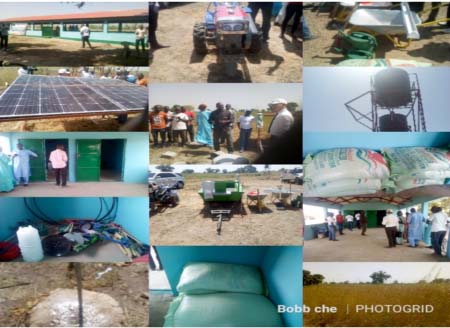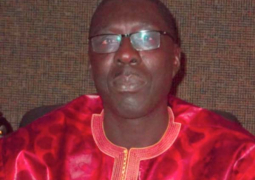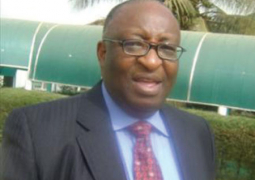
ActionAid
International- The Gambia, last Thursday inaugurated its Climate Resilience
Sustainable
Agriculture Demonstration Farm in Dalaba Village in Central River
Region-South’s Naimina West District, where 34, 000 Gambians are expected to
benefit from the demonstration farm.
The
project title: Promoting Agro-ecology and eco-restoration practices in Southern
Central River and North Bank regions of The Gambia, will be implemented in 30
communities across the beneficiary regions in partnership with Njawara
Agricultural Training Center.
The
project built a demonstration farm to serve as a training centre for farmers in
their drive to adapt to climate change challenges and increase food production
and productivity.
The
overall objective of the project is to contribute to job creation and food
security for women and youth through agro-ecology and resilience building to
mitigate irregular migration. It has a specific objective to scale up adaptive
capacities of women and youth on sustainability agriculture and climate change
through agro-ecology and resilience practices and eco-restoration.
The
result areas of the project are to strengthen resilience capacities of women
and youths
through
agro-ecology and eco-restoration; improved eco-system and environmental
restoration through erosion control and agro forestry; enhance demonstration
and shared learning of experiences through production of case stories, media
programmes (radio and social media) and farmer exchange visits; and enhance
collaboration and networking among state and non-state actors on agro-ecology
and eco-restoration.
The
project will directly support 1, 860 women and youth and indirectly support up
to 32, 137 people from the support provided to the core target group.
The
project is part of the 11th European Development Fund (EDF) Phase 1 project to
The Gambia, with an allocation of 20.5 Million Euro (approximately 1.2 billion
dalasi) to an action entitled: Agriculture for economic growth and food
security/nutrition to mitigate programme” which implementation also include FAO
and WFP.
Omar
Badjie, Executive Director of ActionAid International- The Gambia said because
of climate change, the lives and livelihood of farmers are negatively impacted
which is why they developed the resilience sustainability project.
He
pointed out that it is estimated that 17 percent of The Gambian population has
migrated and as such, draining the rural areas active labour force,
highlighting that it is therefore important that we manage migration
responsibly.
He
said resilience building and adaption of good farming practice is key to
development, stressing that the farm must be open to all those who need it,
particularly women and youth but also urged beneficiaries to take care of the
farm for its sustainability.
“People
have lost interest, hope and trust in agriculture due to climate change,” he
remarked.
Darrell
Sexstone, European Union Delegation Programme Manager said by focusing on women
and youth in particular, the intention is to provide viable alternatives to
migration to urban areas or even Europe, through providing them with the
necessary knowledge, skills and inputs to engage in sustainable agro-ecology
farming practices for food security and gainful employment within their
communities as well as contribute to restoration of the local eco-systems.
He
observed that at present, agriculture is not attractive for youth as there are
low prices for agricultural produce, a weakness of basic services in rural
areas and a lack of connectivity. “The adaption of eco-restoration and
agro-ecological approaches could be essential to change these trends and make
agriculture more attractive to the youth by fostering higher prices for organic
produce, for production diversity and lowering dependency on external inputs
and making farming a lifestyle choice again”, he observed.
Bai
Jabang, permanent secretary of the Ministry of Agriculture said the project is
well aligned with the prioritisation of agriculture in the national development
plan of The Gambia government but also aligned with The Gambia national
agricultural investment plan first generation but by extension the regional
agricultural plan of the ECOWAS agricultural programme.
Fanta
Jatta-Sowe, head of programmes and policy at Actionaid International, The
Gambia said at Actionaid, they believe not only in empowering communities but
also their responsibility to bring development to communities.
She
added that for us to continue living, we have to co-exist with the environment,
saying our attitude and behaviors contribute negatively or positively in
impacting the environment.
She
also challenged people to take care of the environment to ensure generations to
come are able to live in it.
Mama
Manneh, Director of Njawara Agricultural Training Center deliberated on the
negative consequences of climate change and its effects on the livelihood of
beneficiary communities.
He
added that they hope and expect things to be learnt at the demonstration farm
to support our communities to build their resilience on climate change.
Read Other Articles In Article (Archive)
Attempted felony case reaches court
Aug 16, 2013, 10:45 AM



